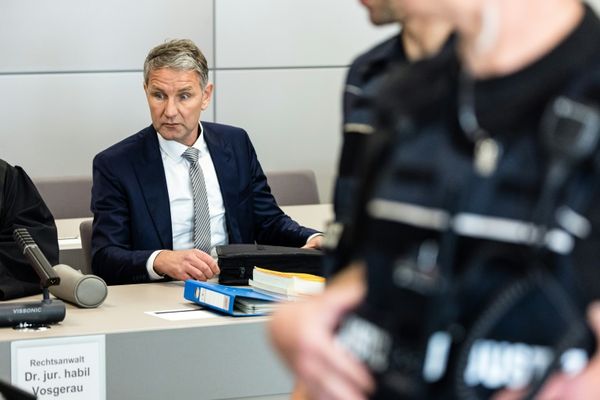Russia accused the US of covering up opposition violations in Syria on Thursday as the three-day old ceasefire came under increasing strain.
The Russian defence ministry said that Syrian regime forces had pulled back from the Castello road, a key access route into Aleppo, but that opposition groups had not withdrawn.
The Russian foreign ministry also complained of opposition shelling. “Only the Syrian army has been observing the ceasefire regime, while the US-led ‘moderate opposition’ has been increasing the number of shellings of residential quarters,” the ministry statement said. “Moreover, it appears that the ‘verbal curtain’ of Washington is aimed at hiding the non-fulfilment of the US obligations.”
The strained rhetoric came as the first UN aid convoy bound for besieged eastern Aleppo remained stuck in the absence of permits from Damascus.
The UN special envoy, Staffan de Mistura, said the Syrian government had not provided facilitation letters that had been agreed as part of the ceasefire deal, meaning that 40 trucks full of humanitarian supplies were halted at the Turkish border.
De Mistura, who said the hold-up was a clear breach of the ceasefire agreement, said the intended delivery of aid into eastern Aleppo, subject to a different permission regime, was also being blocked by hurdles put in place by the Syrian government and opposition fighters.
The delivery of aid is a precondition of the survival of a cessation of hostilities that came into effect on Monday and is designed to lead to unprecedented joint Russian-American action against terror groups inside Syria.
De Mistura insisted the Russians were as disappointed as the UN at the “deeply regrettable” refusal of the Syrian government to grant letters of permission in line with the agreement. He said he had been given fresh assurances by the Russians at a meeting on Thursday morning that the absence of the permission letters was a very severe disappointment, but he did not specify what pressure the Russians were placing on the Syrians to abide by the agreement.
Hundreds of trucks were ready to be loaded, he said, and an opportunity to deliver aid and help solidify the ceasefire was being wasted. The UN has said it cannot cross front lines or checkpoints without Syrian permission.
The separate blockage over eastern Aleppo has left 20 UN trucks that travelled from Turkey into a buffer zone waiting for the past 48 hours for UN agreement that it is safe to travel along the Castello Road, the main supply route into the divided city, where 250,000 people are desperate for food and fuel.
Jan Egeland, head of the United Nations humanitarian taskforce for Syria, said the trucks were still in the buffer zone and “could go on a minute’s notice”. De Mistura said the aid could not move into Syria’s second city before the Castello Road route had been fully secured.

The Russian-American agreement states trucks should be allowed to travel into eastern Aleppo without the need for written permission from the Syrian government. The Syrian government involvement is limited to being informed of the details of the aid being delivered, and details of what had been delivered.
In addition, as part of the agreement, regime checkpoints on the Castello Road should be withdrawn, and opposition forces inside the city’s east should not seek to block the delivery. “The trucks are ready and sealed, and the agreement is that once they move they will not be harassed and they will not be investigated and they will be moving along that road,” De Mistura said.
There have been reports that some opposition fighters are rejecting the delivery of the aid on the basis that it rejects the terms of the broader Russian-American agreement, including the plan to target fighters from the former al-Nusra front. The US says al-Nusra is linked to al-Qaida and is a legitimate target alongside Islamic State. But other groups in eastern Aleppo are reluctant to abandon al-Nusra.
Under the ceasefire plan the Russian and Americans are supposed to create a joint centre to agree legitimate targets to attack by air. The Syrian air force would then in effect be grounded in those specified areas.
Despite the problems, De Mistura insisted the Russian-American agreement “is and remains a potential game-changer”. He said it was too much to describe it as a cessation of hostilities, saying instead it had produced a reduction of violence, adding that “by and large it is holding and is, in fact, substantial”.






